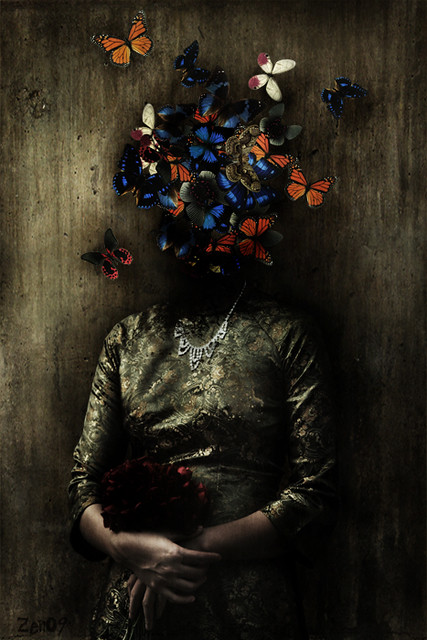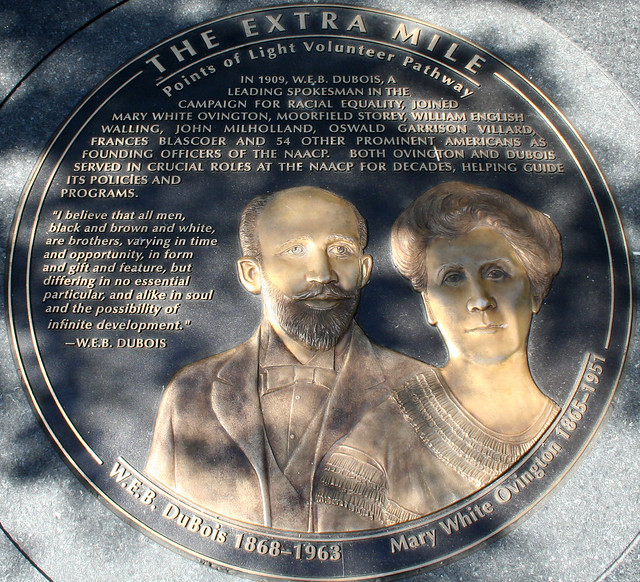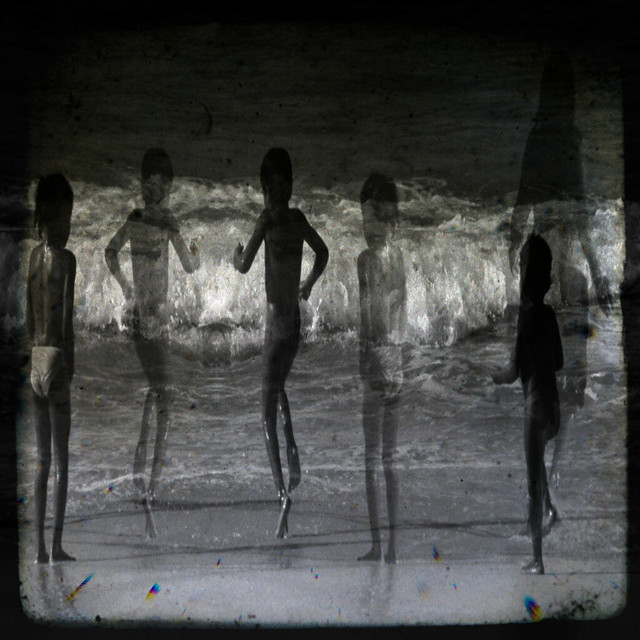One thing I have to confess this semester: I am a cynic, and I have a hard time believing that humanity can improve and correct its mistakes. We've taken a long time to give marginalized groups basic rights, like the right to vote, and yet they keep facing persecution in both developed and developing countries. When people disagree, we can't agree to disagree or have a calm, rational discussion; the Internet is full of fiery disputes and vitriolic, anonymous hate that at times has had a devastating effect.
Society and its problems change, but the people who spur hatred or righteous fury and rebellion don't; we still have men who think it's their right to shoot schoolgirls for speaking out, or politicians who think that women do not deserve equal pay. We still have Jim Crow existing under different laws, and prejudice against others merely by how they look with darker skin and curly hair. What's worse is that we either tolerate these injustices, seeing each one mount up after the other, or pick our battles and confront them head on. Sometimes choosing an issue can lead to one losing friends, like when abolitionists and women's suffragettes split after the Civil War.
Image source: https://farm1.staticflickr.com/76/168549224_e5a2f807f9_z_d.jpg
If I could change people's minds, when I disagree with them, I'd like to change their minds by offering them free copies of the books that I read. Specifically, I'd like to get a steam shovel, load the scoop with books, and dump the load on people who do not use their heads to think about what a misogynistic opinion may do to a girl's life. For those who do not believe in women's rights, and in fact blame women for not getting ahead in life, I'd like to gift them with The Handmaid's Tale by Margaret Atwood. Currently I'm listening to the radio play during the car rides to and from school, and it's the scariest science fiction story I have ever heard, because it's the truest. It's happening for real, and people are perpetuating it.
Humanity and society exist in a flux; overall standards of living have improved for certain populations, but constant change does not allow for an objective view of "better" or "worse." It's part of the reason why I have only written a total of two dystopic stories, though I like the genre; dark dystopias that suggest that the old days were better, or even imperfect, were off the mark. So are the false utopias that portray our time in a negative light.
Image source: http://www.cbc.ca/books/handmaids-tale-cover.jpg
For those who don't know, The Handmaid's Tale is a dystopian novella about an oppressive society based on a loosely interpreted version of Christianity, depriving women and their freedom. After assassinating the President and Congress, blaming it on Muslim terrorists (this was written before 9/11) Christian extremists freeze women's bank accounts, take them into custody and condition them into becoming baby factories for designated husbands. The narrator, Offred, used to be a progressive writer for a women's magazine; now she is a handmaid, a broken soul who longs for her daughter and is coerced into playing forbidden games like Scrabble with her "husband," the commander. She tries to find love in this world she has accepted, but love is hard to find when everyone is against you.
The Handmaid's Tale is scary because at the moment it has played out in more than one country, to varying extents. The United States has had controversy over whether or not companies should cover birth control, even when it's needed for medical conditions, as well as if pregnant women receive ostracism and prejudice in the workplace. One of Glamour's women of the year didn't receive a teaching assistant-ship in the 1960s because her university assumed that she was going to get married and have children, and thus not "develop her career."
Image source: https://farm5.staticflickr.com/4079/4869437033_4ee0ee19af_z_d.jpg
Other countries also play out the dystopia, often depriving women of their choices. Iran's lowering the age of marriage from eighteen to nine, after overthrowing the Shah, showed such extremism even if abiding by sharia law, and in Nigeria 100 schoolgirls were kidnapped and shown to be undergoing conditioning to deny their right to education, thus the right to have choices. We also have politicians that use the term "legitimate rape" when talking about women who are assaulted, as well as men with entitlement issues that go on violent rampages when they don't get what they want, and father chaperones who turn away girls from prom because their dresses turn the fathers on. Right now the March for Life has started a campaign against contraceptives, despite those contraceptives helping women with medical conditions.
Margaret Atwood warned us this would happen. And we didn't listen.
Image source: https://farm3.staticflickr.com/2487/3772013250_81d26b4510_z_d.jpg
No matter how many times we reflect those issues in fiction, it takes great tragedy and courage from the victims to speak up, and for even the remotest change to occur. When such people speak up, they often risk their lives and their reputations, like when Malala Yousafzi spoke for women's education, got shot. Our refusal to listen, and to make things change makes their actions more necessary, because otherwise we doom ourselves. What's worse, sometimes critics blame the victims, believing they are at fault for how others mistreated them.
I have a hard time believing that change will come for real, and permanently. If a dystopian novel from the 1980s predicted that extremists, regardless of religion, would deprive women of their choices, and we have to fight an uphill battle to make sure that we keep our right to learn and to control our bodies, then we fly towards a terrible future.
People who have joined March for Life, the Taliban, and the Iranian government need to read The Handmaid's Tale before they make decisions about others' bodies. They need to know about the price of depriving choices from women before enacting similar oppression. We've handled the price of freedom well enough on our own, and losing our choices would be a hefty price to pay to conform to a black and white ideal.
Image source: https://farm4.staticflickr.com/3054/2380597812_7500dbc4c3_z_d.jpg?zz=1
Image source: http://www.cbc.ca/books/handmaids-tale-cover.jpg
For those who don't know, The Handmaid's Tale is a dystopian novella about an oppressive society based on a loosely interpreted version of Christianity, depriving women and their freedom. After assassinating the President and Congress, blaming it on Muslim terrorists (this was written before 9/11) Christian extremists freeze women's bank accounts, take them into custody and condition them into becoming baby factories for designated husbands. The narrator, Offred, used to be a progressive writer for a women's magazine; now she is a handmaid, a broken soul who longs for her daughter and is coerced into playing forbidden games like Scrabble with her "husband," the commander. She tries to find love in this world she has accepted, but love is hard to find when everyone is against you.
The Handmaid's Tale is scary because at the moment it has played out in more than one country, to varying extents. The United States has had controversy over whether or not companies should cover birth control, even when it's needed for medical conditions, as well as if pregnant women receive ostracism and prejudice in the workplace. One of Glamour's women of the year didn't receive a teaching assistant-ship in the 1960s because her university assumed that she was going to get married and have children, and thus not "develop her career."
Image source: https://farm5.staticflickr.com/4079/4869437033_4ee0ee19af_z_d.jpg
Other countries also play out the dystopia, often depriving women of their choices. Iran's lowering the age of marriage from eighteen to nine, after overthrowing the Shah, showed such extremism even if abiding by sharia law, and in Nigeria 100 schoolgirls were kidnapped and shown to be undergoing conditioning to deny their right to education, thus the right to have choices. We also have politicians that use the term "legitimate rape" when talking about women who are assaulted, as well as men with entitlement issues that go on violent rampages when they don't get what they want, and father chaperones who turn away girls from prom because their dresses turn the fathers on. Right now the March for Life has started a campaign against contraceptives, despite those contraceptives helping women with medical conditions.
Margaret Atwood warned us this would happen. And we didn't listen.
Image source: https://farm3.staticflickr.com/2487/3772013250_81d26b4510_z_d.jpg
No matter how many times we reflect those issues in fiction, it takes great tragedy and courage from the victims to speak up, and for even the remotest change to occur. When such people speak up, they often risk their lives and their reputations, like when Malala Yousafzi spoke for women's education, got shot. Our refusal to listen, and to make things change makes their actions more necessary, because otherwise we doom ourselves. What's worse, sometimes critics blame the victims, believing they are at fault for how others mistreated them.
I have a hard time believing that change will come for real, and permanently. If a dystopian novel from the 1980s predicted that extremists, regardless of religion, would deprive women of their choices, and we have to fight an uphill battle to make sure that we keep our right to learn and to control our bodies, then we fly towards a terrible future.
People who have joined March for Life, the Taliban, and the Iranian government need to read The Handmaid's Tale before they make decisions about others' bodies. They need to know about the price of depriving choices from women before enacting similar oppression. We've handled the price of freedom well enough on our own, and losing our choices would be a hefty price to pay to conform to a black and white ideal.
Image source: https://farm4.staticflickr.com/3054/2380597812_7500dbc4c3_z_d.jpg?zz=1





No comments:
Post a Comment